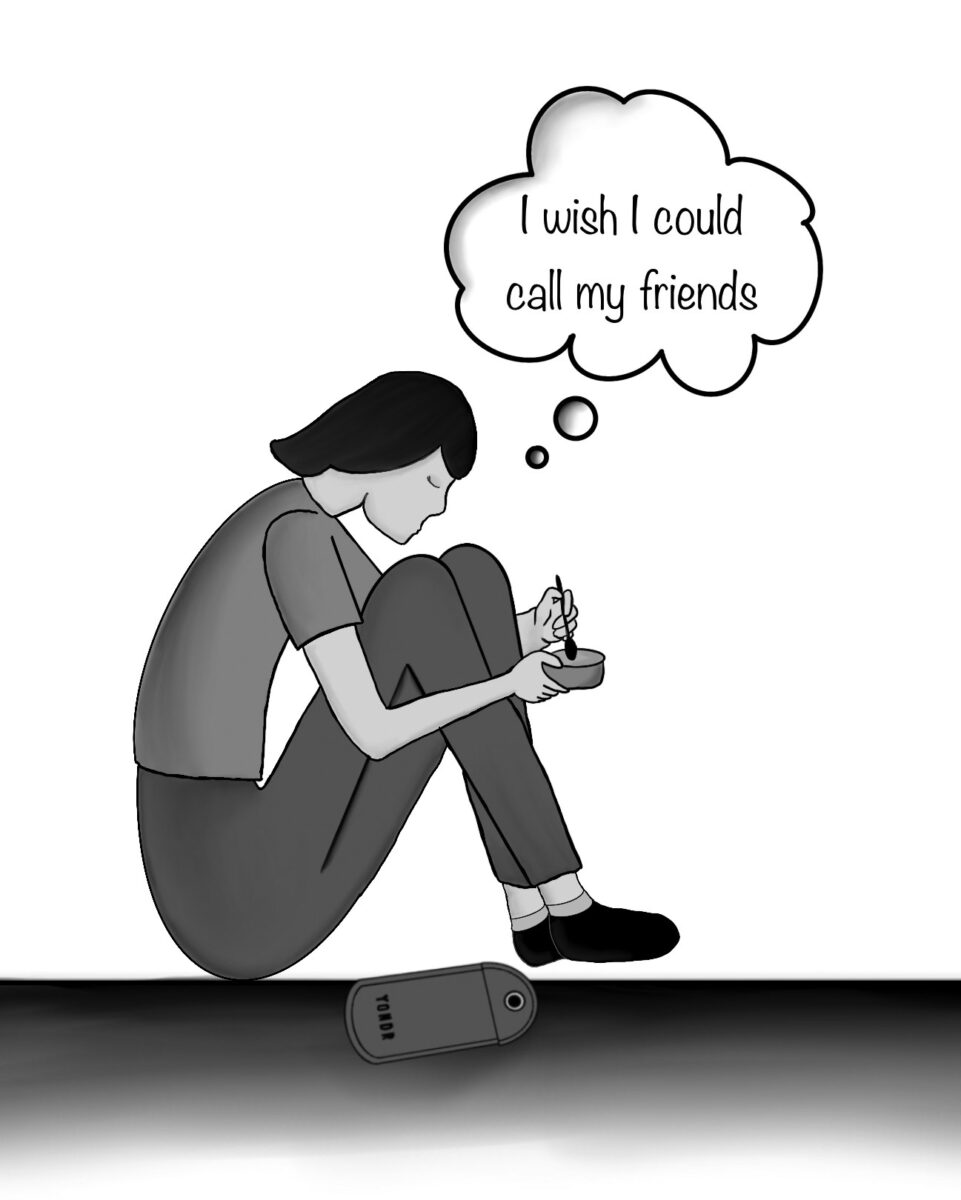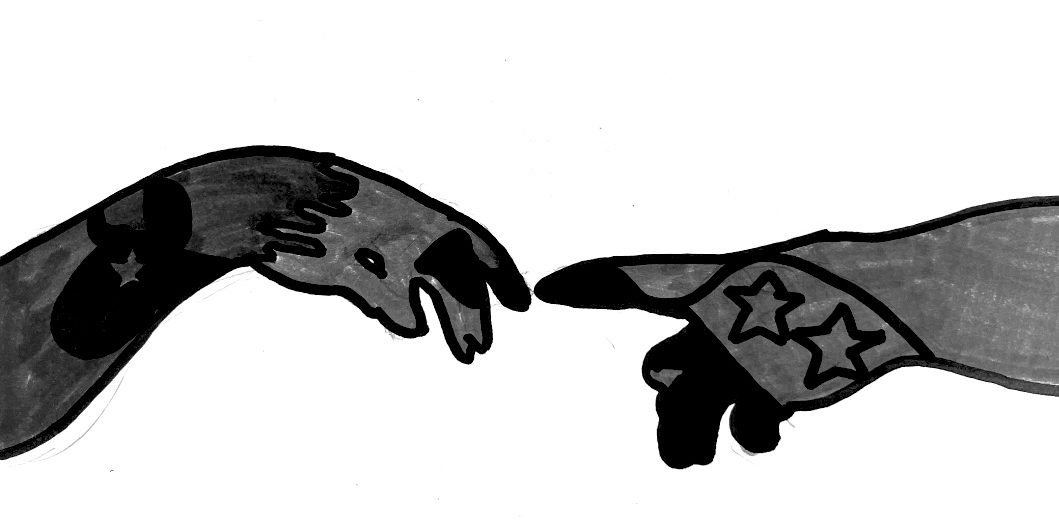On Friday, Mar. 13, 2020, Redwood High School shut down as a result of COVID-19. Now, two years later, regulations regarding the pandemic have evolved, and students are finally allowed to choose to unmask. While it would be nice to stop talking about COVID-19, a topic which we have dwelled on for the past two years, we feel that it is necessary to take this moment of transition to reflect on this time and document our key takeaways. COVID-19 has been a period of isolation and restriction, snubbing parts of our teenage years. However, we have adapted, persevered and grown in a myriad of ways. It is important to use this time of adjustment to acknowledge what can be left behind and to recognize what positives we can take forward with us into the next stages of our lives.
As students, one of the first major shifts we experienced due to COVID-19 was not being able to attend in-person school. Virtual learning caused many of us to fall out of our routines and slip into habits that would not serve us well in the future. While we no longer have an excuse that our WiFi is not working when we are 10 minutes late, many of us are guilty of showing up to class long after the bell has rung. Due to an increase in students bringing their own computers to school every day, we are ignoring lessons and instead texting, shopping for prom dresses or checking our March Madness Brackets.
This level of distraction in school became extremely prevalent in the midst of the pandemic. According to a Washington Post survey recorded in June 2021, about half of teenagers ages 14 to 18 said the pandemic negatively impacted their academics. Through many rocky shifts and changes, we lost our sense of structure and a daily routine. While the flexible schedule of waking up later and deciding when to do your homework might have worked in the beginning, the world has changed. As our lives become busier, it is important to move past the instability we felt and take steps to rebuild that previously-lost school structure.

In another Washington Post survey, school districts in the Bay Area have recorded that the percentage of students with more than one failing grade has jumped from 19.7 percent in 2019 to 30.7 percent in 2020. This furthers the claim that online school has caused a deficit in learning. With the world finally starting to return to normalcy, it is time to leave those bad habits and deficiencies in our learning in the past.
With the negatives being left behind, we must now take the positive lessons we have learned with us as we move to the future.
To begin, COVID-19 may have physically isolated us from one another, but students found other unique ways to connect. While a major part of high school is small talk in class and meeting new people, friendships can become interchangeable very quickly. Many of us began to miss the people that we passed in the hallways, even if it’s just a small acquaintance, but we also learned that the friendships that carried through COVID-19 were the ones that truly mattered.
Human connection was not the only thing we grew to appreciate. Every bite at a restaurant, every sunset, even every movie scene at a theater became that much more special. Now that we do not have as many restrictions, we do not want to lose the significance of those common moments.
For many, COVID-19 was also a place for individual growth. Thinking outside of the box during such a restrictive time is something we hope to bring with us into the future. Through new hobbies, individuals were able to create new versions of themselves. In reminiscence of this, we hope curiosity and desire to adventure do not fade away and that we can continue to thrive in our new passions.
Further, we learned to take care of ourselves and others in unique circumstances. COVID-19 caused an increase in awareness about anxiety and depression, as the stress of the pandemic was very mentally taxing. According to a World Health Organization scientific brief, “within the first year of COVID-19, the global prevalence of anxiety and depression increased by a massive 25 percent.” But as this upward spike hit, we saw mental health problems being de-stigmatized. This opened up a long-overdue discussion. Moving forward, let’s continue to create safe and open spaces for people of any age to come forward about their mental health struggles and continue to offer resources to help those that are struggling.
While the experiences above might be what the majority have gone through, not everyone can relate to them. As we are waiting for the pandemic to be over, we encourage everyone to reflect on their own personal positive and negative takeaways from the pandemic. No matter who you are, COVID-19 has greatly changed your life and it is important to look into the positive ways we have all grown. This pandemic has taken more than it has given, but that does not mean it hasn’t given us anything at all.











